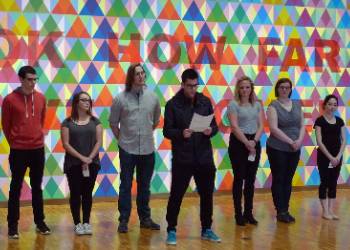Professor: Tyler Farrell
Course Title: British and Irish Drama on Stage
MU J-Session 2024 is December 18, 2023 - January 13, 2024
Online work: December 18-30, 2023 (with December 23, 24, 25, 26th off)
In London: January 1-13th, 2024
Course Description: This J-Session course will introduce students to drama live, on stage and take an in-depth critical look at how theater is interpreted in all forms from written and spoken mediums. Students will see roughly 5 to 7 plays at various theaters in the historic theater district of London and reflect through writing, critical interpretation, and class discussion. We will also take theater tours of some of London’s famous theaters including: Shakespeare’s Globe Theater, The Royal National Theater, The Old Vic, The Harold Pinter Theater, and the Kenneth Branagh Theater Company at the Garrick. Plays will be based on availability. Based on what dramas we see, the class will discuss drama from its beginnings until present day and look at conventions of how and why drama took shape in the world as well as its impact on literature and art. We will examine Aristotle’s six definitions of tragedy and inform our thinking about many conventions of drama such as: plot, character, dialogue, and conflict. We will also address questions about the spoken tradition of drama and act out/discuss scenes from various plays to hear words/ideas expressed aloud, to hear and see the world created in a given play. The class will utilize discussion questions about each play to expand our thinking as well as methodologies of literary criticism to understand the symbolic nature of works of drama. We will also examine literary history and look at ways in which social contexts and literary traditions helped shape the theater of different eras. We will partner with the City University, London or King’s College, London for housing and classroom space for students and faculty. We will also experience London itself through walking tours and tube travel.
Contact hours will be met with in-class work and discussions, writing assignments, theater trips, play going, and lectures.
Assignments: Two critical papers, presentation, daily reading and writing assignments, daily discussion, tours and activities, group projects, and a final writing project that will involve both critical and creative components.



